WHO: 21 Gaza hospitals totally non-functional
The World Health Organization has once again sounded the alarm over the deepening humanitarian and medical crisis in war-torn Gaza, calling on the international community to take urgent steps to alleviate the grave peril facing Palestinians in the besieged territory.
According to the latest WHO assessments, Gaza has 13 partially functioning hospitals, two minimally functioning ones, and 21 that are not functioning at all.
There are actually no functional hospitals left in the north. Al Ahli was the last one but it's now minimally functioning; it is still treating patients but not admitting new ones, along with Al Shifa, Al Awda and Al Sahaba hospital.
So these hospitals are still sheltering also thousands of displaced people.
At Al Ahli about currently about 10 staff, all junior doctors and nurses, continue to provide basic first aid and pain management, as much as possible, wound care and trauma stabilization services.
Dr Rik Peeperkorn, WHO representative, Gaza
The Nasser Medical Complex, which is the most important referral hospital in southern Gaza, is partially functioning.
The World Health Organization has expressed concern about reports of residential areas being ordered to evacuate around the hospital which is extremely concerning.
According to WHO reports and eyewitness accounts, when military activities intensified near the hospital, ambulances, patients, hospital staff, WHO and partners, were unable to reach the complex.
The WHO has also said that it is working to strengthen and expand the existing struggling health system.
WHO will keep striving to supply health facilities in northern Gaza and without fuel, staff and other essential medicines.
Medicines [alone] will not make a difference and all patients will die slowly and painfully.
Dr Rik Peeperkorn, WHO representative, Gaza
There is concern over the fresh wave of displacement of Palestinians in the Gaza Strip who have been pushed by Israel to move further south.
Such a displacement of people will further strain health facilities in the south, which are already struggling to meet the population’s immense needs.
The WHO has declared that this forced mass movement of people will also lead to more overcrowding, increased risk of infectious diseases, and, make it even harder to deliver humanitarian aid while most of the Palestinians in the Gaza Strip are grappling with terrible injuries, acute hunger and severe risk of disease.
The Director-General of the World Health Organization, Tedros Adhanom Ghebreyesus, has also repeated a call on the international community to "take urgent steps to alleviate the grave peril facing the population of Gaza".
The remarks came a day after the WHO staff went on a high-risk mission to deliver humanitarian supplies to the Al Shifa Hospital, in northern Gaza, and the Al Amal Palestine Red Crescent Society, in southern Gaza.
Both hospitals serve as shelters for displaced Palestinians seeking refuge amid the relentless Israeli bombardment. At the Shifa Hospital, reportedly, 50,000 people are sheltering while 14,000 others are at Al Amal.
I have seen children, women, young men, both men and women, people bleeding out, at the same time yesterday at Al Aqsa I saw a woman who had multiple gunshot wounds, an attempt was made to refer her and she was referred back because she was bleeding so heavily.
here's blood everywhere in these hospitals. At the moment we're seeing almost only trauma cases come through the door and at a scale that's quite difficult to believe. It's a bloodbath as we said before it started.
Sean Casey, WHO Medical Team Coordinator
I had been injured and have been in the hospital for 10 days. As soon as the Israeli troops withdrew, I rushed to take them.
As you can see, they suffer from total burns for no reason. They were left with no food or water and no care. There were other injured members of my family but I wasn't able to carry them.
After I arrived at the hospital, I witnessed massive destruction, an indescribable scene, patients are scattered in every corner, beds are overturned, and medical material are damaged.
Injured Palestinian
These comments come as Israel is pressing ahead with its genocidal war in the Gaza Strip.
From corpses lying unattended on streets to hospitals and schools reduced to rubble, to children made orphans and tens of thousands of people rendered homeless.
The events unfolding in the besieged Gaza Strip since October 7th can be considered a classic case of genocide or ethnic cleansing.
The death toll in the coastal territory since the Israeli regime launched its indiscriminate aerial and ground attacks nearly three months ago is now over 21,000, most of whom were women and children.
Almost all refugee camps have been rendered uninhabitable due to random strikes, forcing the majority of the population to sleep under the open sky and with heavy winds and heavy downpours.
The bear tanks were only meant to give an image of victory to its defeated army which has only succeeded in killing unarmed civilians and destroying civilian facilities.
This is really the worst thing that the US and Israel could do to Palestinians. The genocide and the numerous war crimes are [still] going on.
Munir Ahmed, Journalist and Political Analyst
Iran seeks South Korea’s assistance for AI, fiber-optic projects
VIDEO | Iran's 'Eqtedar' (Power) maneuver
Israel hits HTS military target in Syria for 1st time since fall of Assad
VIDEO | Press TV's news headlines
Israel has slaughtered 13,000 students in Gaza, West Bank
VIDEO | More Zionist than Zionists: Biden’s legacy to be defined by Gaza genocide
Hamas confirms handing approval of Gaza ceasefire deal to mediators
VIDEO | Iran: Show of strength


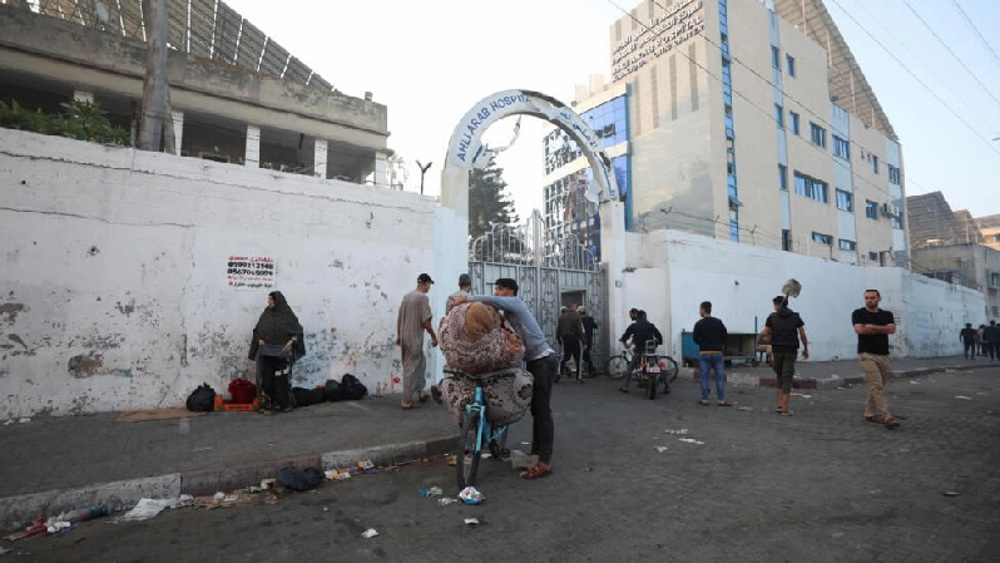
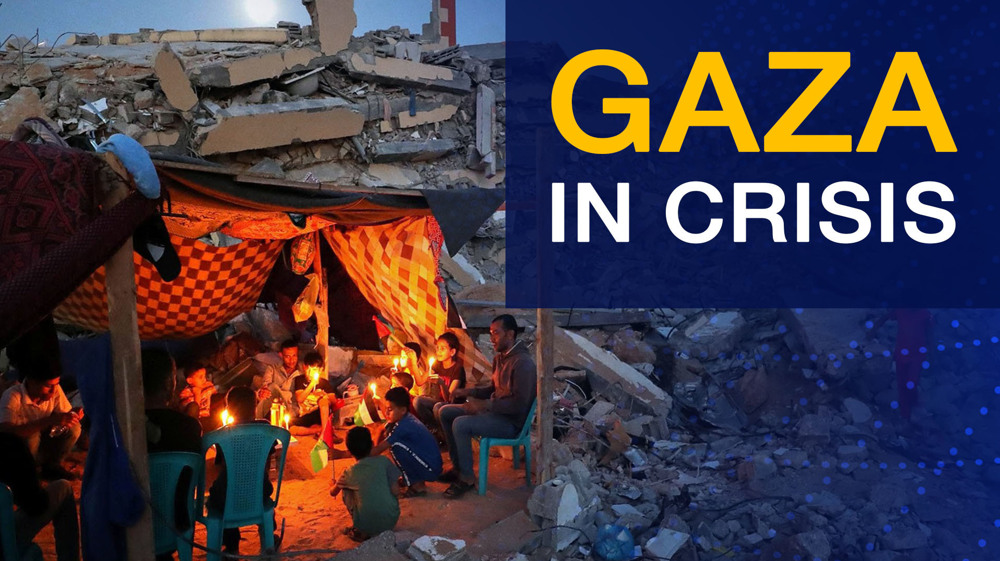
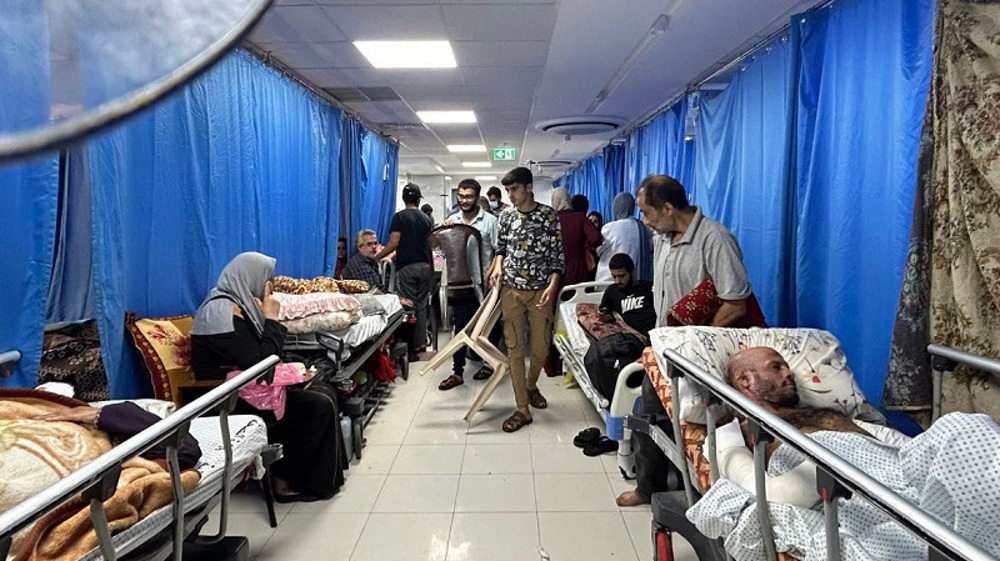
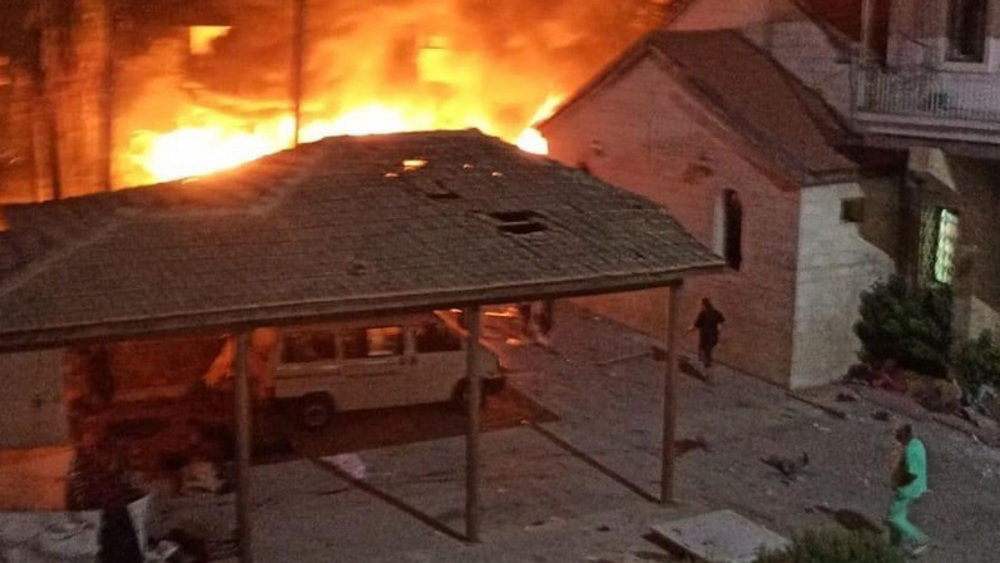
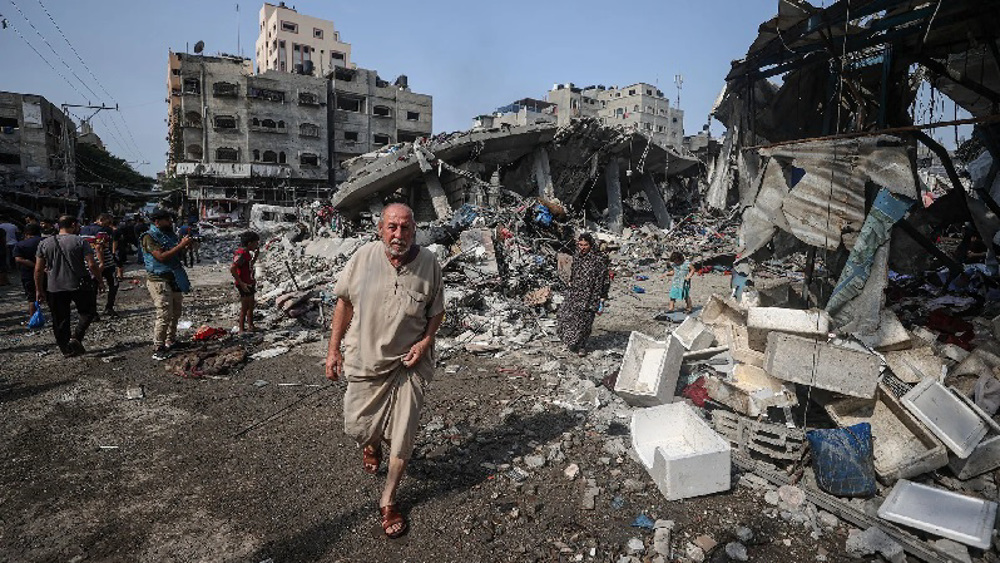
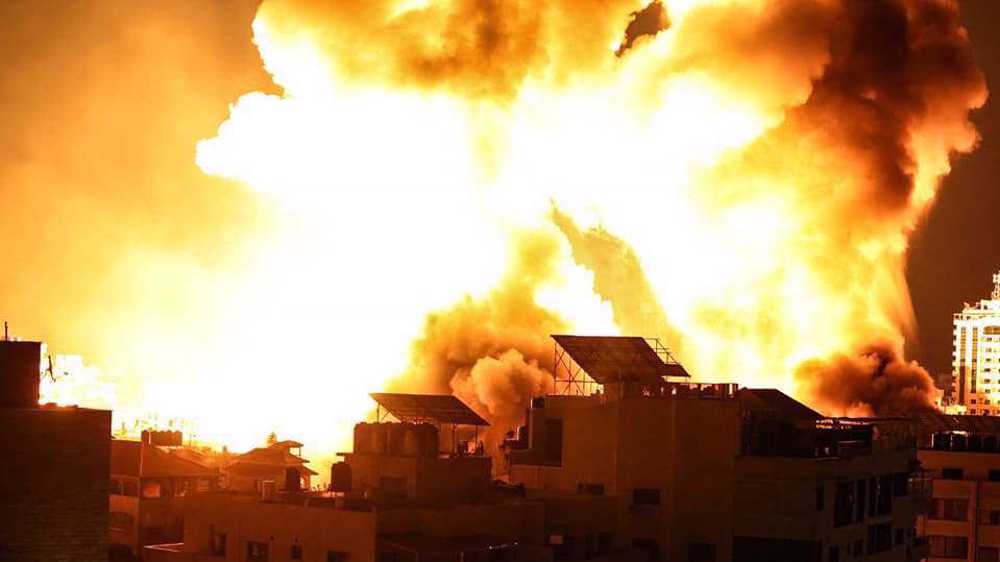
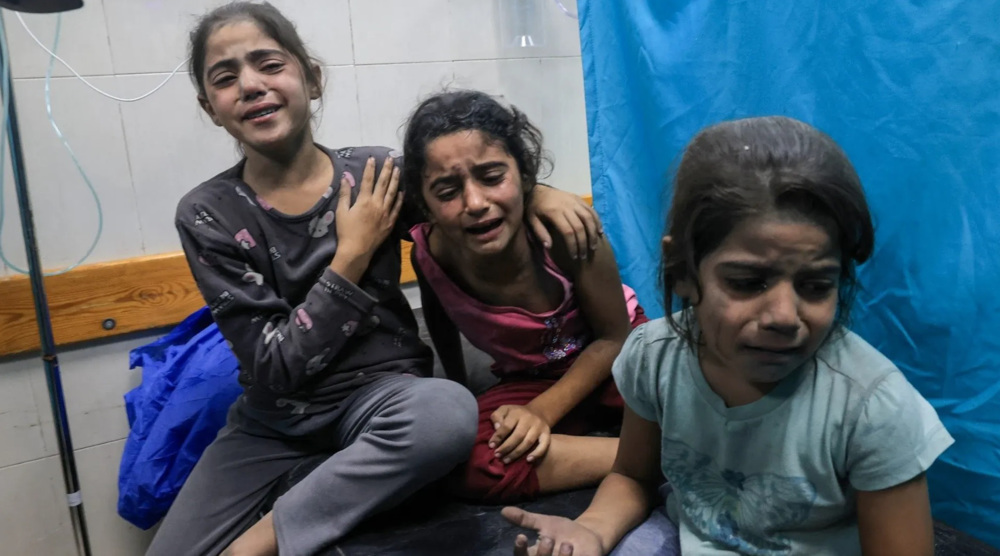


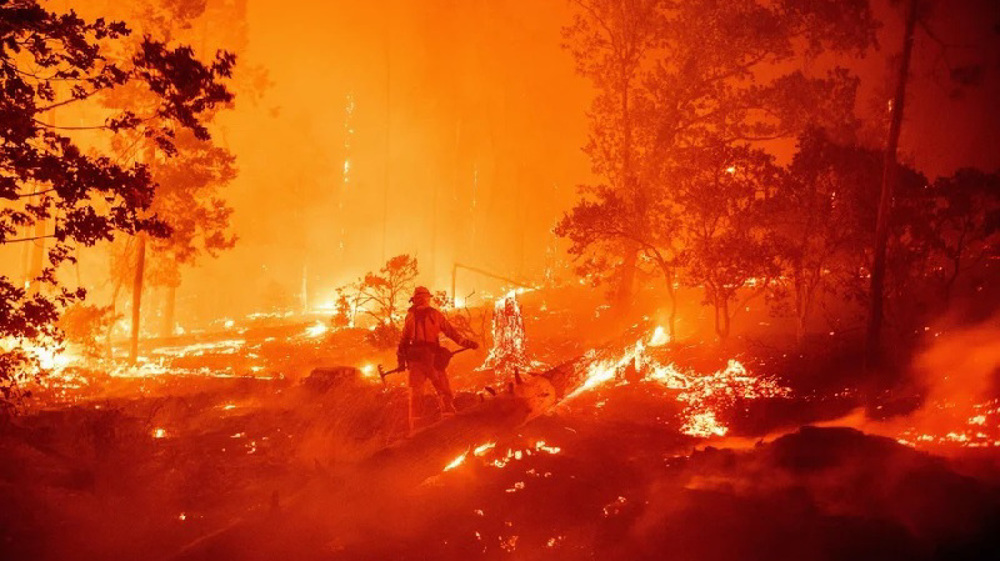



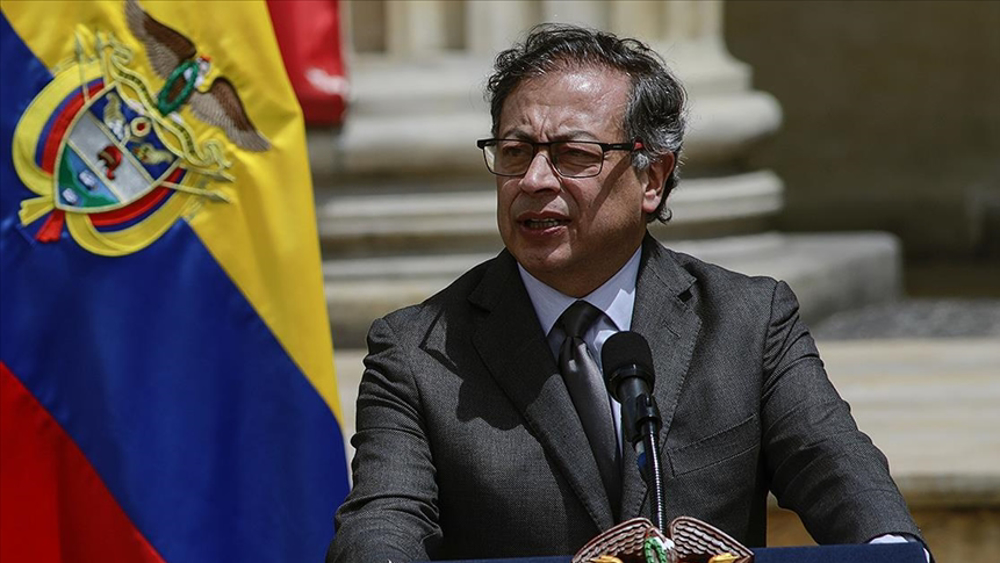
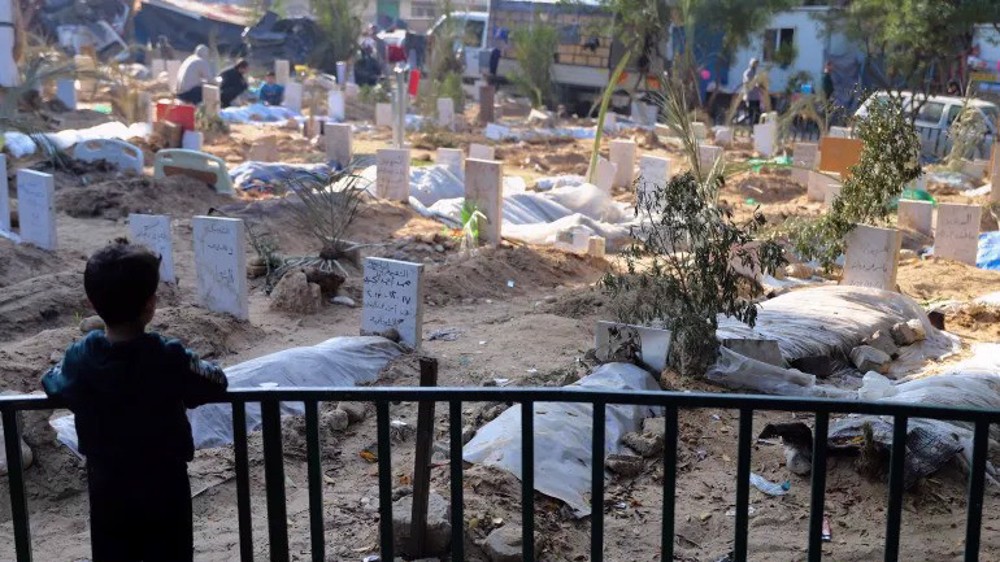
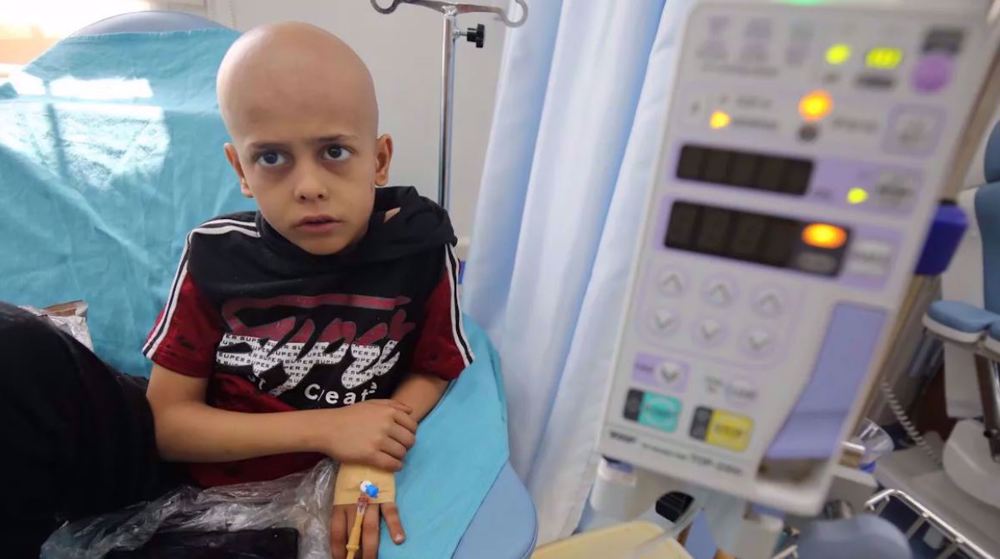
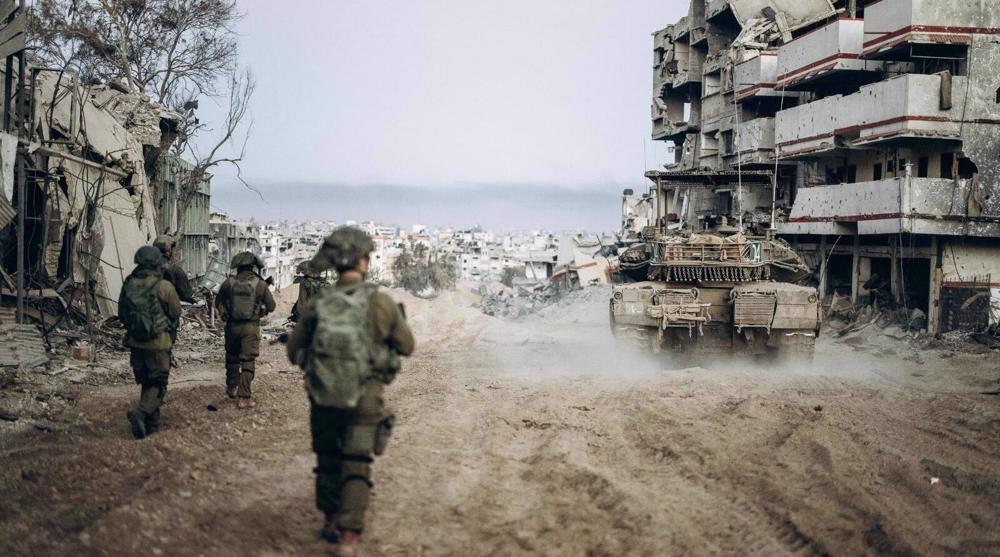
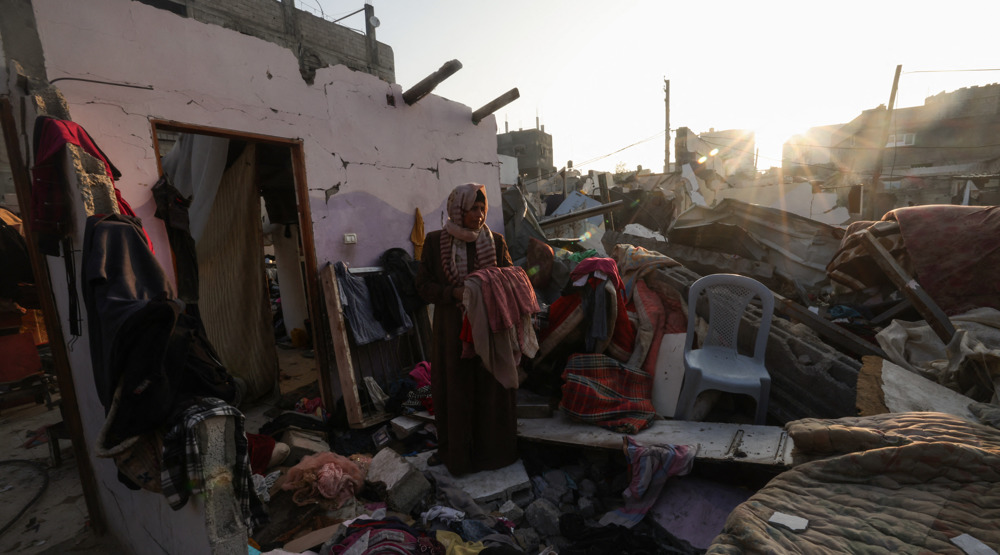
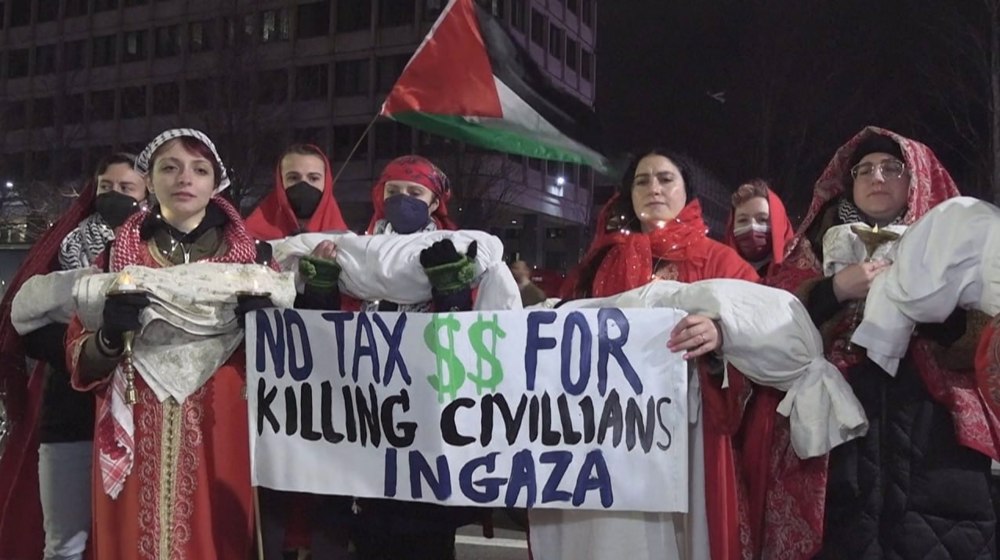
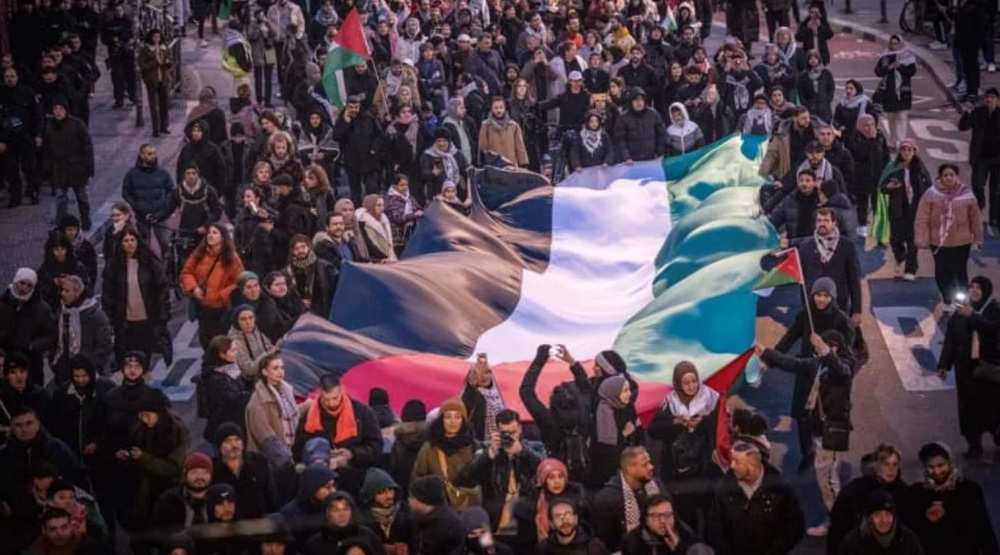
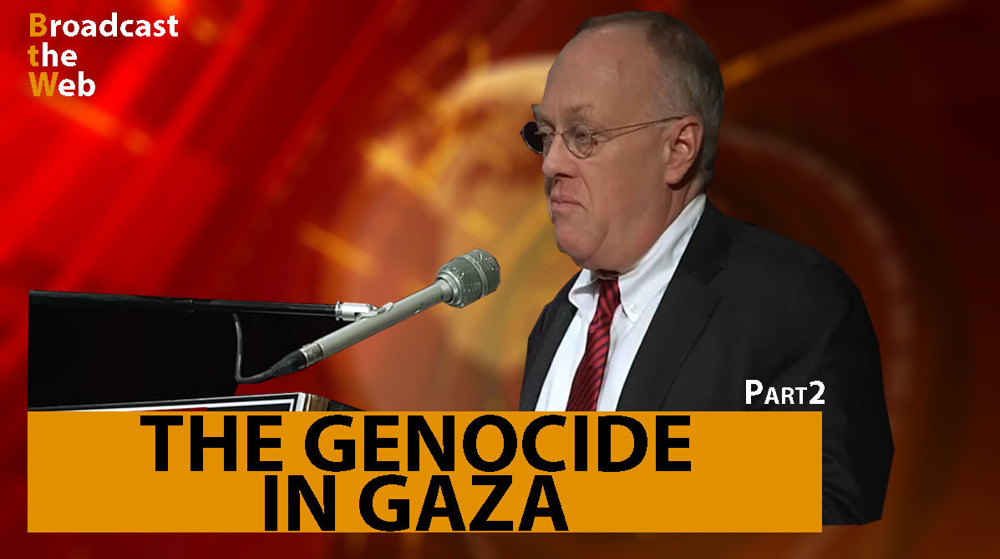
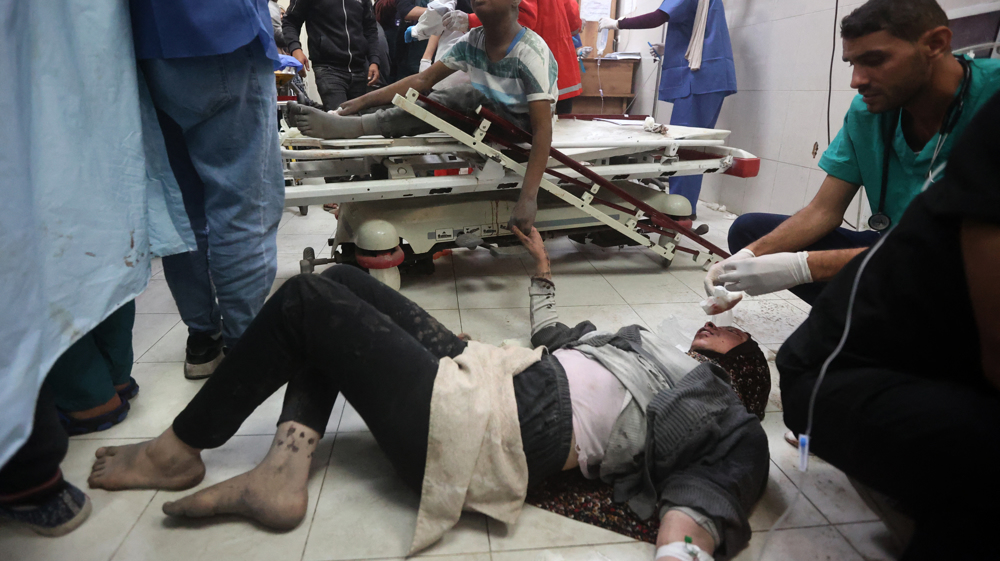
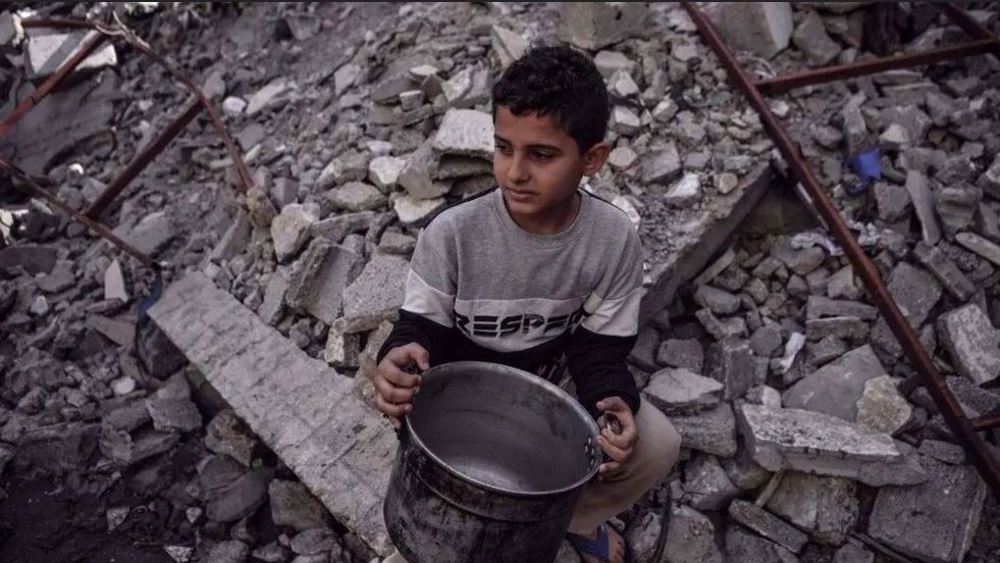

 This makes it easy to access the Press TV website
This makes it easy to access the Press TV website